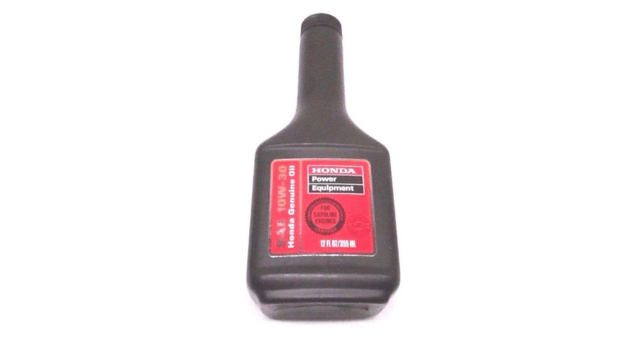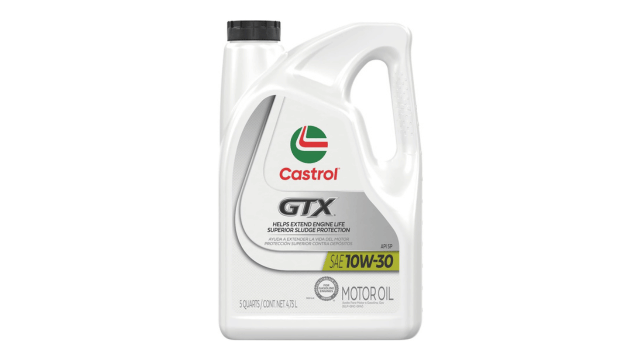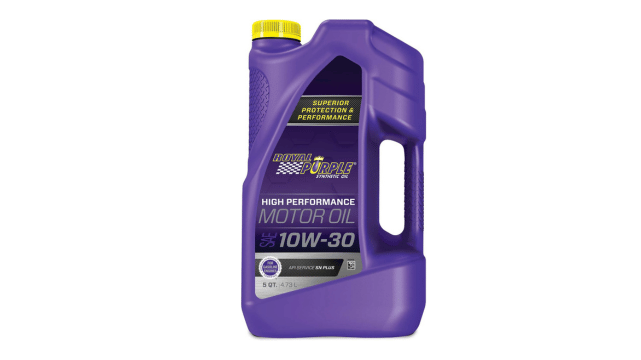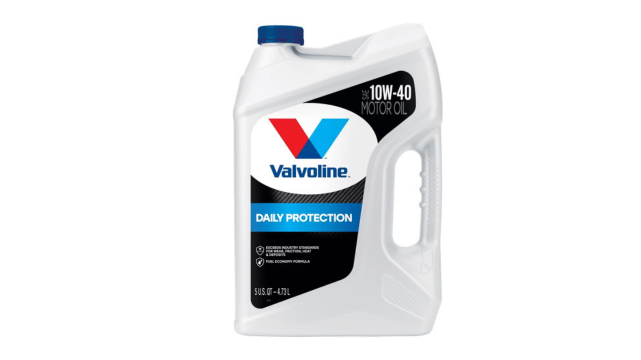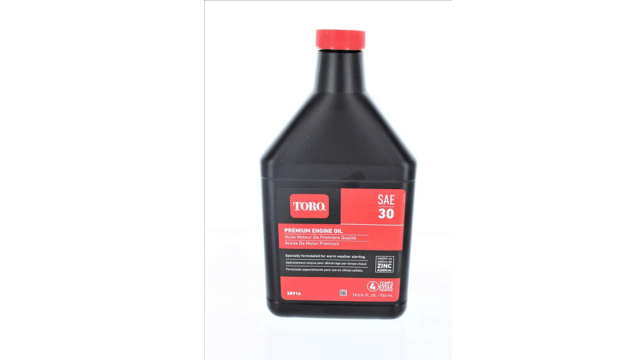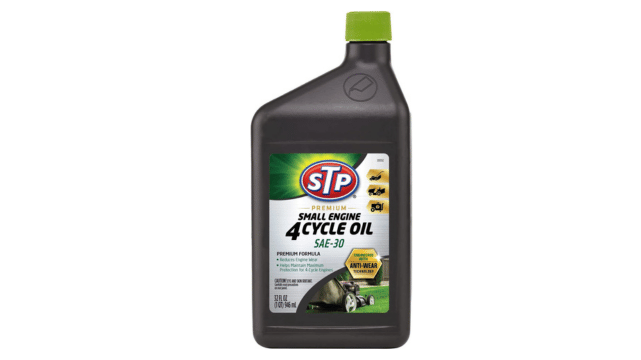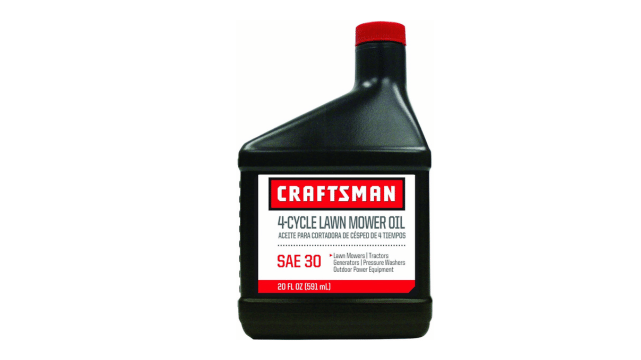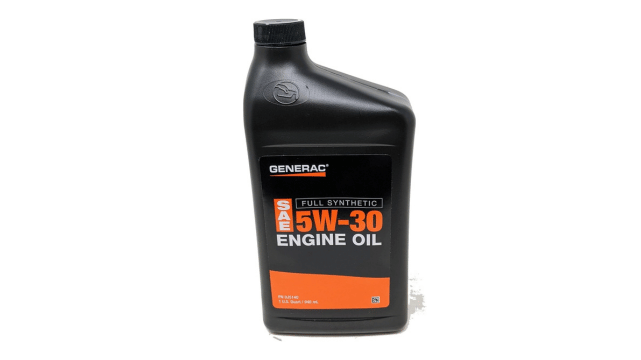Looking to keep your lawn mower running smoothly and efficiently? In this guide, we’ve gathered the best lawn mower oils that ensure optimal engine performance and longevity. These top-rated oils provide superior lubrication, reduce engine wear, and help your mower tackle tough jobs with ease. Whether you need synthetic blends for high-performance machines or conventional oils for regular maintenance, we’ve got the best options for every mower type. Check the links to explore our recommended lawn mower oils and keep your equipment in top shape. Maximize your mower’s lifespan and efficiency with the right oil choice—explore the guide today!
Best Lawn Mower Oils Buying Guide
Understanding the Importance of Quality Lawn Mower Oil
Choosing the right oil for your lawn mower is a crucial aspect of maintaining its performance and longevity. High-quality lawn mower oil serves multiple essential functions within the engine, including lubrication, cooling, and protection against wear and tear. As the lifeblood of your lawn mower’s engine, the oil you select plays a vital role in reducing friction between moving parts, dissipating heat, and preventing the buildup of harmful deposits. By investing in premium lawn mower oil, you’re not only ensuring smooth operation but also extending the life of your equipment, potentially saving money on repairs and replacements in the long run. Understanding the significance of quality oil is the first step in making an informed decision that will keep your lawn mower running at its best for years to come.
Types of Lawn Mower Oils
Conventional Oil
Conventional lawn mower oil has been a staple in small engine maintenance for decades. This type of oil is derived from crude oil and undergoes a refining process to meet the basic requirements for lawn mower engines. Conventional oils are generally less expensive than their synthetic counterparts and can provide adequate protection for engines that operate under normal conditions. They are suitable for many standard lawn mowers, especially older models that were designed with conventional oils in mind. However, conventional oils have some limitations. They tend to break down more quickly at high temperatures and may not offer the same level of protection against engine wear as more advanced oil formulations. Additionally, conventional oils may require more frequent changes, especially in demanding conditions or for engines that see heavy use. Despite these drawbacks, conventional oil remains a popular choice for many homeowners due to its affordability and widespread availability.
Synthetic Oil
Synthetic lawn mower oil represents the cutting edge of lubricant technology. Unlike conventional oils, synthetic oils are chemically engineered to provide superior performance across a wide range of operating conditions. The molecular structure of synthetic oil is more uniform, which allows it to maintain its viscosity better at extreme temperatures, both high and low. This characteristic is particularly beneficial for lawn mowers that may sit unused during cold winters or operate in scorching summer heat. Synthetic oils also offer enhanced protection against engine wear, as they contain advanced additives that help to clean the engine and prevent the formation of sludge and deposits. Many synthetic oils are designed to extend the intervals between oil changes, which can be convenient for users who mow frequently or have large properties. While synthetic oils typically come with a higher price tag, their superior performance and potential for extended use often make them a cost-effective choice in the long term, especially for newer, high-performance lawn mowers or those used in demanding conditions.
Semi-Synthetic Oil
Semi-synthetic lawn mower oil, also known as synthetic blend oil, offers a middle ground between conventional and fully synthetic oils. This type of oil is created by blending conventional oil with synthetic base stocks, resulting in a product that combines some of the benefits of both. Semi-synthetic oils generally provide better protection and performance than conventional oils, but at a lower cost than full synthetics. They offer improved resistance to oxidation and thermal breakdown compared to conventional oils, which means they can maintain their protective qualities for longer periods under stress. Semi-synthetic oils are particularly well-suited for lawn mowers that are subjected to varying workloads or those operated in regions with fluctuating temperatures. They can provide an excellent balance of protection, performance, and value for many lawn mower owners who want an upgrade from conventional oil without the full investment in synthetic oil. When considering semi-synthetic oil, it’s important to check your lawn mower’s manual for compatibility, as some newer, high-performance engines may specifically require full synthetic oil for optimal operation.
Key Factors to Consider When Choosing Lawn Mower Oil
Viscosity Ratings
Understanding viscosity ratings is crucial when selecting the appropriate oil for your lawn mower. Viscosity refers to the oil’s resistance to flow at different temperatures, and it’s typically expressed as a two-number code, such as 10W-30 or 5W-30. The first number, followed by a “W” for winter, indicates the oil’s flow characteristics in cold temperatures. A lower number means the oil remains thinner in cold conditions, allowing for easier engine starts. The second number represents the oil’s thickness at high operating temperatures. Higher numbers indicate thicker oil, which provides better protection at high temperatures but may slightly reduce fuel efficiency. Most lawn mowers require a multi-grade oil that can perform well across a range of temperatures. It’s essential to consult your lawn mower’s manual for the recommended viscosity grade, as using oil with the wrong viscosity can lead to poor engine performance, increased wear, and potential damage. Climate considerations also play a role in choosing the right viscosity; if you live in an area with extreme temperature variations, you might need different oils for summer and winter use to ensure optimal protection year-round.
Engine Type and Age
The type and age of your lawn mower’s engine significantly influence the choice of oil. Four-stroke engines, which are common in most modern lawn mowers, typically require different oils than two-stroke engines. Two-stroke engines often need a special oil that’s mixed with fuel, while four-stroke engines use oil in a separate reservoir. Newer engines, especially those in high-performance or commercial-grade lawn mowers, may benefit more from synthetic oils due to their advanced formulations and superior protection against wear. These modern engines often have tighter tolerances and may run at higher temperatures, making the stability of synthetic oil particularly advantageous. On the other hand, older engines or those with higher mileage might perform well with conventional or semi-synthetic oils, which can be more compatible with worn engine components and potential leaks. Some older engines may even require non-detergent oils to prevent the dislodging of built-up deposits that could clog oil passages. Always refer to your lawn mower’s manual for specific oil recommendations based on the engine type and age, and consider consulting with a small engine specialist if you’re unsure about the best oil choice for an older or high-mileage mower.
Climate and Operating Conditions
The climate in which you operate your lawn mower and the specific conditions under which it’s used are critical factors in selecting the right oil. In regions with extreme temperature fluctuations, multi-viscosity oils that perform well in both cold and hot conditions are often the best choice. For areas with consistently high temperatures, oils with higher viscosity ratings at operating temperature (the second number in the viscosity code) may provide better protection. Conversely, in colder climates, oils that remain fluid at low temperatures (indicated by a lower first number in the viscosity code) can ensure easier starting and immediate protection upon engine startup. Beyond temperature, consider the typical operating conditions of your lawn mower. If you frequently mow on steep inclines or use your mower for extended periods, you might benefit from oils designed for high-temperature stability and enhanced wear protection. Dusty or dirty environments may call for oils with strong detergent properties to keep the engine clean. For lawn mowers used infrequently or stored for long periods, oils with additives that protect against corrosion and rust can be particularly beneficial. By matching your oil choice to your specific climate and operating conditions, you can ensure optimal performance and longevity for your lawn mower.
Conclusion
Selecting the right oil for your lawn mower is a crucial decision that can significantly impact the performance, longevity, and efficiency of your equipment. By understanding the different types of oils available – conventional, synthetic, and semi-synthetic – and considering key factors such as viscosity ratings, engine type and age, and operating conditions, you can make an informed choice that best suits your specific needs. Remember that while high-quality oil may come with a higher upfront cost, it often proves to be a wise investment in the long run by reducing wear, extending engine life, and potentially decreasing the frequency of oil changes. Always consult your lawn mower’s manual for specific oil recommendations, and don’t hesitate to seek advice from small engine specialists if you’re unsure. By taking the time to choose the right oil and maintaining a regular oil change schedule, you’re ensuring that your lawn mower will continue to perform at its best, season after season, helping you maintain a beautiful lawn with minimal hassle and maximum efficiency.



